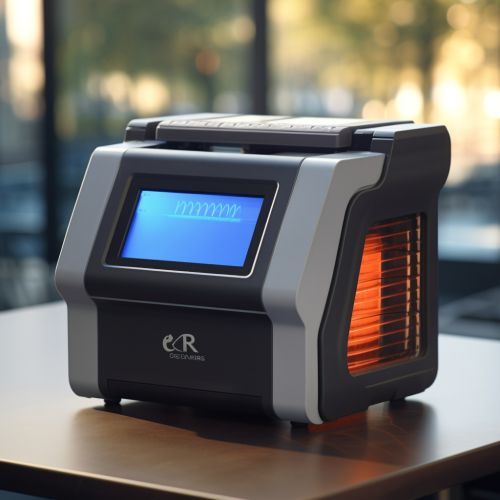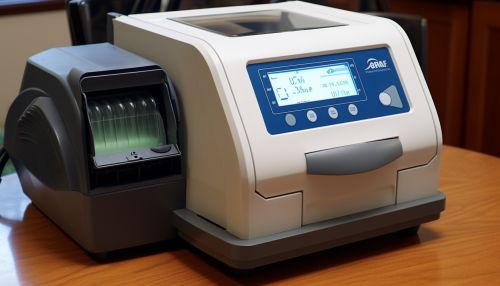Polymerase chain reaction
Introduction
The Polymerase chain reaction (PCR) is a method widely used in Molecular biology to make several copies of a specific DNA segment. Using PCR, copies of very small amounts of DNA sequences are exponentially amplified to generate thousands to millions of more copies of that particular DNA segment. PCR is now a common and often indispensable technique used in medical and biological research labs for a variety of applications.


Principle
The underlying principle of PCR is the DNA replication in the cell. The PCR technique is based on the natural process that cells use to replicate a new DNA strand. The key materials required for PCR include the DNA template that contains the DNA region to be amplified, two oligonucleotides also known as primers, dNTPs, and a DNA polymerase.
Process
PCR is carried out in cycles, where each cycle consists of multiple steps. The initial step is the denaturation step. In this step, the reaction mixture is heated to a temperature of 94-98°C. This heat causes the DNA molecule's two strands to separate from each other.
The next step is the annealing step. The reaction temperature is lowered to allow the DNA primers to attach to the template DNA. These primers are designed to bind to the ends of the desired DNA segment.
The final step in the cycle is the extension/elongation step. The temperature is raised again, and the DNA polymerase begins adding dNTPs to the 3' end of each primer.
This process of denaturation, annealing, and extension is repeated around 30 times, leading to the exponential amplification of the desired DNA segment.
Applications
PCR has a wide range of applications in various fields such as medical diagnostics, forensic science, and research. In medical diagnostics, PCR is used to detect the presence of DNA sequences found in certain pathogens. In forensic science, PCR is used to amplify DNA from crime scene samples to help identify suspects. In research, PCR is used to produce enough DNA for further procedures, such as sequencing, or cloning into plasmids for other experiments.
Variations of PCR
There are several variations of the basic PCR technique, which include reverse transcription PCR (RT-PCR), quantitative PCR (qPCR), and multiplex PCR. Each of these variations has specific applications and advantages over the other.
Limitations and Challenges
Despite its widespread use and significant advantages, PCR also has some limitations. These include the requirement of prior knowledge about the target sequence to design specific primers, the possibility of contamination leading to false results, and the limitation in the size of the DNA that can be amplified.
